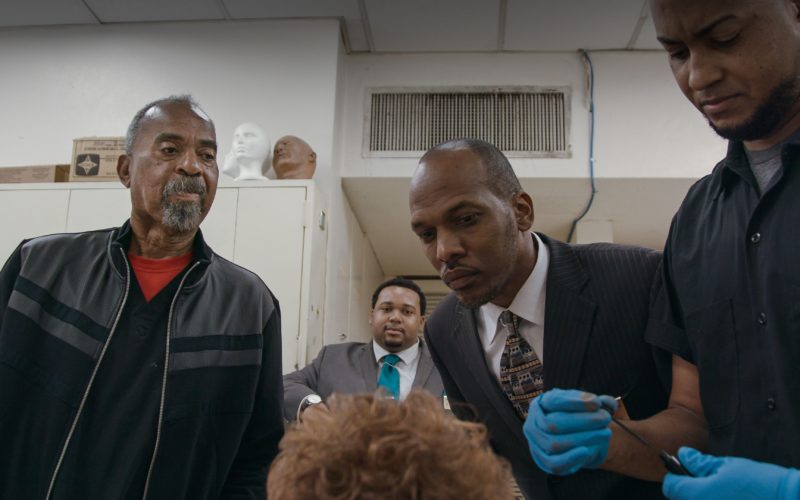The Passing On (Clarke, 2020)
The word “acceptance” plays a prominent role in The Passing On, Nathan Clarke’s new documentary about an African-American funeral director mentoring his potential successor.
When James Bryant quizzes his mentee about the five stages of grief there is a pregnant and symbolic pause between “depression” and “acceptance.” Bryant’s mentee, Clarence Pierre, states that “I’m black, but I don’t feel like I am accepted” in the African-American community. Pierre is gay; whether the ostracism he feels from the community he serves makes it easier or harder to serve them is a complex question. The emotions that people feel when they come in contact with a funeral parlor are not specific to the grieving, but neither are they ones that contemporary society is good at equipping us to deal with. Anger, numbness, despair, all are hard to deal with. Grief can make us question what we think we know about God and the way the universe operates.
Bryant does not condemn Pierre, but the film isn’t a tolerance lecture. Bryant is honest about his own struggles with drug addiction stemming from trauma experienced during combat. War, like death, can make us question what we think we know about God. “I accept the struggles of others,” Bryant said. He doesn’t excuse them. He doesn’t forgive them. He “accepts” them. What does acceptance mean in a Christian context? And why does it feel so much like dying? We tend to think that death is the one thing we have no choice about, the thing we must accept. But what if it is just the most overt example of a Godly principle? What if learning to accept the flaws and struggles of others is the greater sign of spiritual growth than our own personal piety or the lengths we will go to condemn behavior that makes us uncomfortable?
Like Clarke’s previous film, Wrestling for Jesus, The Passing On midwifes tolerance rather than simply preaching for it. When we look carefully at those different from us, taking the time to reflect on commonalities, matters of politics, sociology and religion cease to be abstractions. They become exemplified by real faces, and our understanding of these experiences become entwined in narratives of actual people’s lives. This is the power that documentary film has not only to reflect reality but also to help shape it.
As is the case with most good documentaries, The Passing On is about more than one thing. The title refers not merely to the deaths of individual people but also the decline of an industry. Seeking to answer the question about why there are fewer African-American run funeral homes, the film forces us to reflect on how traditions are made–and lost. In other words, the title is correctly ambiguous. “Passing on” is a euphemism for dying, but it is also the means in which knowledge, tradition, and values are sustained.

